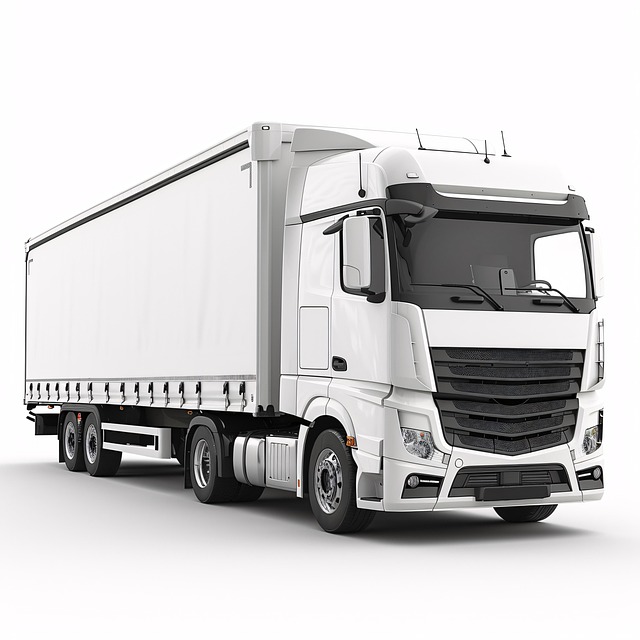Single-owner trucking businesses face unique risks due to their smaller scale, including financial vulnerabilities from vehicle breakdowns and legal issues. Adequate coverage is crucial for maintaining sustainability, managing cash flow fluctuations, navigating regulations, and planning for retirement. Comprehensive coverage protects against physical damage, liability, and potential legal repercussions, ensuring the owner's personal assets are safeguarded. Proactive risk management includes regular maintenance, fleet management programs, and comparing tailored insurance options from multiple insurers to secure competitive rates and adequate protection.
In the dynamic landscape of trucking, single-owner operations face distinct risks that demand tailored strategies. This article delves into the unique challenges faced by solo truckers, emphasizing the critical need for adequate coverage in their operations. We explore common risks, from mechanical failures to liability issues, and provide practical tips on navigationg insurance options. By understanding these risks and implementing effective mitigation strategies, single-owner trucking businesses can ensure resilience and long-term success.
Understanding the Unique Risks Faced by Single-Owner Trucking Businesses

Single-owner trucking businesses face distinct risks that often go overlooked due to their smaller scale. Without a team or diverse revenue streams, owners bear full responsibility for operations and financial obligations. This means any incident—from vehicle breakdowns to legal issues—directly impacts their personal finances and business sustainability. As such, adequate coverage is essential for mitigating these unique risks.
Specific challenges include securing enough insurance to cover potential liabilities without breaking the bank, managing cash flow fluctuations, and staying informed about constantly evolving regulations. Single-owners must also carefully consider retirement planning and business succession strategies, as they are typically self-reliant in these aspects.
The Importance of Adequate Coverage for Single-Owner Operations

For single-owner trucking businesses, having adequate coverage is not just a best practice—it’s a necessity. As a sole proprietor, your personal assets and financial stability are directly linked to your business’s operations. Without proper insurance, a single accident or legal claim could put your entire livelihood at risk. This includes not only the physical damage to your truck but also potential liability for injuries sustained by others.
Understanding the unique risks inherent in single-owner operations is crucial. Unlike larger companies with dedicated teams and resources, you wear many hats. Therefore, comprehensive coverage that protects against both operational and personal risks is essential. This ensures that if the unthinkable happens, you have the financial backing to not only repair or replace assets but also navigate any legal repercussions, safeguarding your future and that of your business.
Strategies to Mitigate Common Risks in Solo Trucking

To mitigate risks associated with operating a single-owner trucking business, proactive strategies are essential. Firstly, comprehensive coverage is paramount. This includes both insurance options tailored to trucking operations and risk management programs specific to solo drivers. Adequate liability coverage protects against potential accidents while on-the-job, while collision and comprehensive insurance safeguard against vehicle damage or theft. Moreover, considering a fleet management program can enhance safety and operational efficiency. These digital tools offer real-time tracking, driver behavior monitoring, and automated reporting, enabling owners to actively manage risks and ensure compliance with regulations.
Regular maintenance checks are another effective strategy. Preventative care reduces the likelihood of breakdowns or mechanical failures during trips, minimizing delays and associated costs. Keeping records of service history ensures that vehicles meet safety standards and helps in claims processing if an accident occurs. Additionally, building a network of reliable repair facilities along common routes can expedite vehicle repairs, ensuring prompt return to service.
Navigating Insurance Options for Single-Owner Businesses: Tips and Best Practices

Navigating insurance options for single-owner trucking businesses can be a complex task, but with the right approach, owners can secure adequate coverage at competitive rates. One key tip is to compare quotes from multiple insurers, considering not just price but also the breadth of coverage offered. Different policies may include variations in liability, collision, and comprehensive deductibles, so it’s crucial to understand what each option covers.
Best practices include evaluating your specific business needs and risk profile accurately. As a single-owner, you might face unique challenges like personal assets at risk or potential liability from on-the-road incidents. Customized coverage that addresses these concerns can provide peace of mind. Additionally, staying informed about industry regulations and safety standards will help ensure the insurance policy aligns with legal requirements and best practices for your trucking business.
Single-owner trucking businesses face distinct risks that require tailored strategies. By understanding these unique challenges, from operational vulnerabilities to financial exposure, owners can make informed decisions regarding adequate coverage single-owner businesses. Implementing risk mitigation tactics and exploring suitable insurance options are pivotal steps in ensuring the long-term sustainability and protection of these operations. Through proactive measures, solo truckers can navigate the road ahead with enhanced confidence and security.
